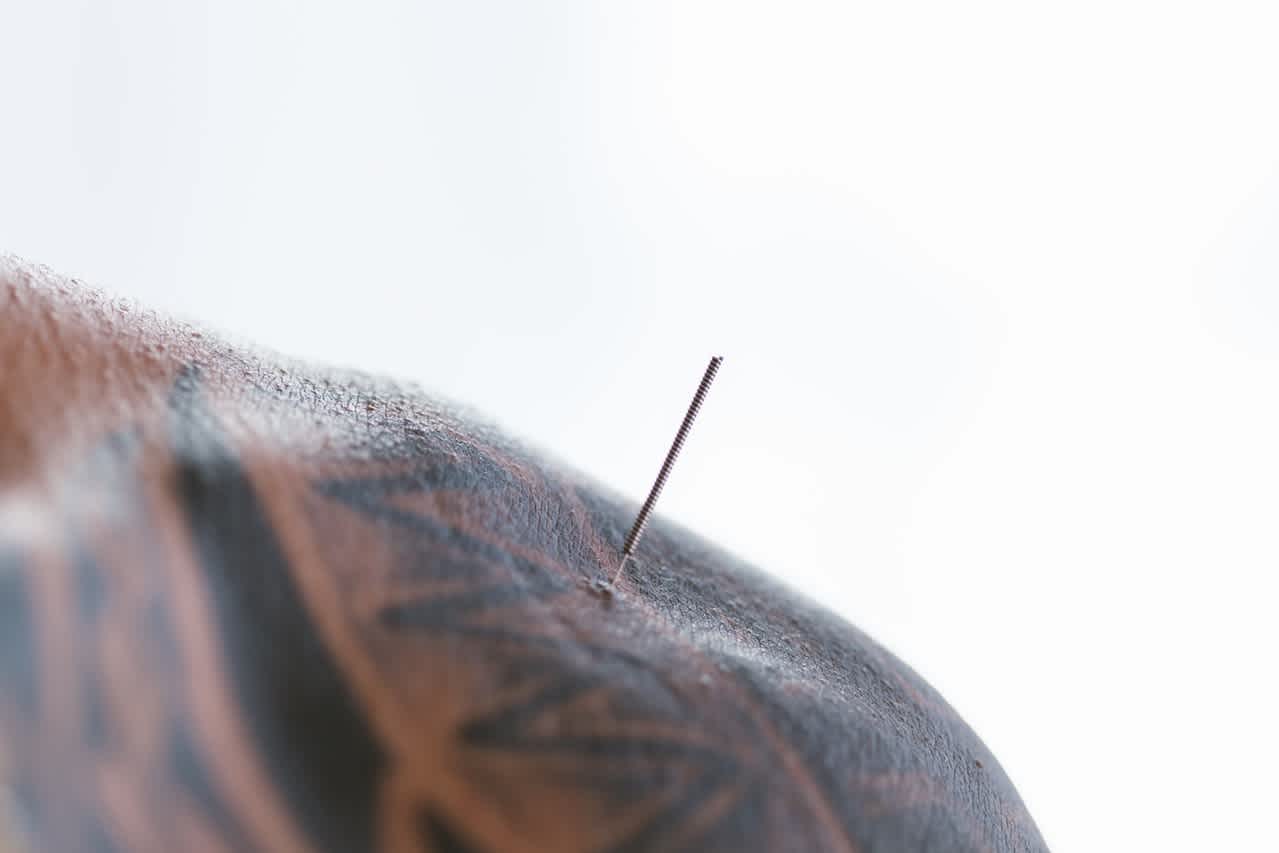“Is acupuncture safe?” is one of the first questions that many people ask about the treatment, as it is a relatively unknown quantity in the Western world, despite growing in popularity in recent years. In this article, we determine the safety of acupuncture, as well as detailing the risks and contraindications of the treatment.
So, is acupuncture safe? Many medical professionals agree that acupuncture is generally safe, provided that it is delivered by a properly trained individual, and contraindications are considered before treatment begins. What’s more, risks and adverse side effects tend to be low in number and minor.
Read on to learn more about the safety of acupuncture, as well as its risks and side effects.
How Safe is Acupuncture?
Both research studies and medical professionals have concluded that acupuncture is generally very safe, and that the risk of negative reaction to acupuncture is very low as long as it is delivered by a properly trained individual.
Properly trained acupuncture practitioners are well versed in safety and hygiene procedures, as well as being knowledgeable about high-risk groups and conditions that should seek medical advice before undergoing treatment.
Clients concerned about needle safety need not worry as acupuncture needles are disposable, pre-sterilised, individually packaged, and are often supplied in guide-in tubes which ensure that nothing can touch the needle prior to insertion.
Side effects of acupuncture and dry needling are generally rare, mild, and short lived; a 2001 study reported that adverse reactions to acupuncture, when carried out by a trained professional, occur in less than 1 in 10,000 cases.
Risks Associated with Acupuncture
Leading acupuncture bodies assure the public that there are very few side effects associated with acupuncture, and when conducted by a qualified practitioner, tend to be minor, short-term, and self-correcting:
Pain, bleeding and bruising where the skin was punctured
During the procedure, acupuncture needles are inserted to various depths at strategic points on clients’ bodies. On occasion, this may result in mild bleeding or bruising around the needle site which will usually go away quickly.
Feeling faint, drowsy and/or dizzy
On rare occasions, acupuncture can result in feeling light headed, drowsy, or faint. To prevent this, clients should make sure to eat before treatment and not get up from the table too quickly once treatment has ended. Sometimes our bodies need a little extra time to catch up. If they do feel faint, drowsy or dizzy following treatment, ensure that they do not drive or operate heavy machinery until they feel better.
Contraindications of Acupuncture
Whilst acupuncture is generally risk-free, there are a number of contraindications that practitioners should be aware of. High-risk groups such as the below should consult with a doctor before undergoing treatment.
Absolute Contraindications
Absolute contraindications are conditions and situations in very high-risk groups where acupuncture and dry needling should only be used after consulting a doctor.
- Use of particular meridians on pregnant women
- Use of acupuncture on clients with uncontrollable movements
- Use of acupuncture on clients with spinal instability
- The needling of scars, keloid, recent wounds, or skin with sensory deficit
- Use of acupuncture on clients with blood disorders, or those on anticoagulant medication
- Use of acupuncture on clients with a pacemaker
Relative Contraindications
Relative contraindications are lower-risk than absolute contraindications, however, should be seriously considered on a case-by-case basis, and GP consultation may still be necessary.
- Clients that have had an acute stroke
- Clients with cancer
- Clients with skin conditions
- Clients with diabetes
- Clients with epilepsy
Other Special Precautions
Whilst not strictly a contraindication, other special considerations should also be given to:
- Imuno-suppression
- Clients with an unclear medical diagnosis
- Clients with an abnormal physical structure
- Those that will be driving after treatment
Is Acupuncture Safer than Western Medicine?
Whilst acupuncture does have mild side effects in some cases, when compared to western medicine, it is a relatively risk-free solution. In fact the BMJ states “...acupuncture [is] a relatively safe and moderately effective intervention for a wide range of common chronic pain conditions.”
The BMJ goes on to state that acupuncture and dry needling can considerably improve the quality of life of those that respond well to acupuncture, providing a longer-term, low-risk solution to chronic pain in particular, in comparison to non-steroidal anti-inflammatory drugs. The BMJ also suggests that acupuncture and dry needling may be an effective alternative in musculoskeletal cases where the patient is at high-risk from adverse drug reaction.
Final Thoughts
Acupuncture is generally considered safe by most in the scientific and medical communities, as the risks and side effects of acupuncture are few and far between, and when they do occur, they are usually fairly mild and short-term.
However, if clients are still unsure about their suitability for acupuncture, we recommend that they consult their GP before going ahead with treatment. This will clarify their suitability, or provide them with an alternative treatment, such as massage therapy, or physiotherapy.
Acupuncture at Breeze Academy
Breeze Academy is one of the UK’s leading CPD providers for healthcare professionals, and is committed to providing training courses which result in practitioners that are confident, effective, and above all, safe in the delivery of acupuncture. We offer a range of acupuncture and dry needling CPD courses for healthcare professionals that are interested in either upskilling themselves, or providing an additional service offering to their clients.
Take a look at our courses online today, or get in touch for more information.
